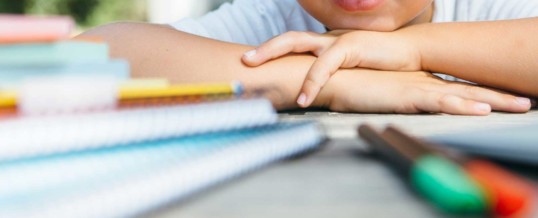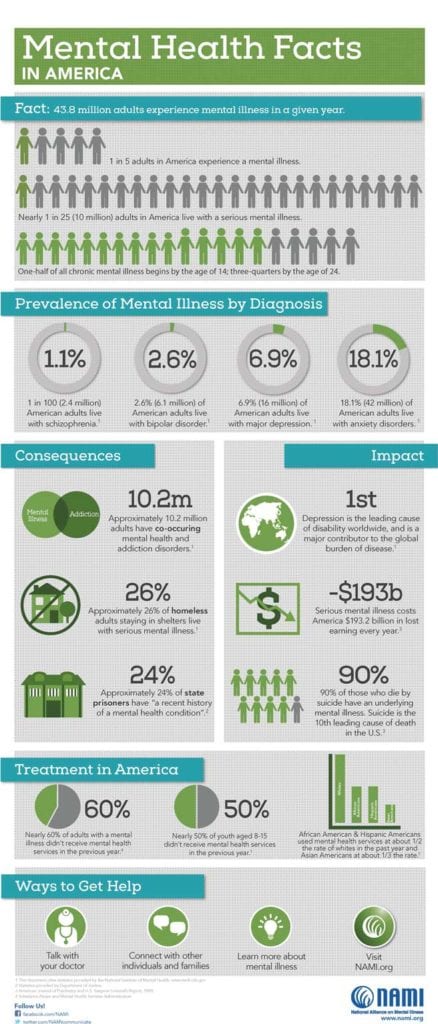
The mental health training gap in schools has become evident and it’s beginning to weigh heavily on students, teachers and administrators.
Mental Health Concerns are Too Common for Teachers to Continue Without Proper Training
The lack of training for teachers and staff is contributing to the severity of the mental health crisis in schools. Without specialized training in mental health, most teachers are not properly prepared to help students with their mental health concerns.

Studies have shown that one out of every five students may struggle with a mental illness. 20% of people between the ages of 13-18 have a mental health condition according to the National Alliance on Mental Illness (NAMI). Mental health concerns in schools is a pressing situation that can no longer be ignored.
Sandy Merz, a teacher in Arizona, shares a story about one of his students, “Lucy”, that teachers and school staff across the US can relate to.
Mental Health Issues Can be Hard to Detect
A Story About a Student: Lucy and Her Undetected Depression
Lucy was an intelligent eighth grader with a passion for books and drawing. Merz describes her as having a “small, but dependable group of friends.” From the outside looking in, she seemed like a normal, happy and healthy teen.
However, Merz began to observe some troubling behavior. At first, Lucy seemed upset about something, but when Merz approached her she insisted “it didn’t have anything to do with school.” Over time, Merz noticed Lucy tearing up as friends would try to console her before class. One day Lucy could no longer hold it in. As she burst into tears before class, Merz took her aside hoping he could help the situation. Lucy responded by saying, “I just don’t want to be sad anymore.”
After their conversation, Merz learned that Lucy suffered from clinical depression. He comments, “One of my favorite students had just all but told me that she suffered from clinical depression, and I had no clue how to help her. The rest of the class would soon be needing attention, and I needed to act.”
There Are Lots of Other Students Like Lucy Who Need Help
These situations happen in schools nationwide all of the time and, even more often, children and teens don’t have anyone to intervene and are left to deal with mental health issues alone.
Many teachers have experienced similar circumstances with their students and want to help, but aren’t sure how to appropriately approach mental health due to a lack of professional training. Students are dealing with conditions like Lucy’s and most of the time teachers aren’t even aware what is going on. If a teacher is able to intervene, it’s usually better than nothing, but this also raises the question for the teacher of “what do I do now?”
The factor that makes student mental health so tricky is that it isn’t always the students teachers would expect to struggle. Merz never thought a good student like Lucy would suffer from a condition like clinical depression and was shocked when he found out. If educators are not well-equipped it’s unlikely they’ll be able to identify a student who is suffering.
Most Educators Receive Zero Mental Health Training
Sadly, the majority of teachers don’t receive any type of mental health training. This makes educators feel stuck when they find themselves in situations where they have no choice but to deal with a student who needs help. Teachers are left wondering how to best handle things with little to no support.
Some may argue that students dealing with mental health issues should seek out their school counselor. While school counselors are trained in mental health and are a great resource, the ratio of students per counselor is bleak. Only three states in the US currently have the approved ratio of 250 students per counselor.
Students who want or need to seek out help are getting left behind as counselors are overburdened. This results in some student mental health issues slipping through the cracks as they continuously worsen, and teachers are the people best positioned to help.
The Biggest Gap is on the Front Lines
Merz agrees that relying solely on a school counselor who can’t possibly handle the number of students they’re expected to is a recipe for disaster. He says, “This is a poor way to do things. Every teacher, administrator, psychologist, and counselor with whom I’ve talked agrees that teachers need professional development on issues and best practices regarding student mental health.”
50% of all mental illnesses begin by age 14.
NAMI states that approximately 50% of students age 14 and older who experience a mental illness end up dropping out of school.
There is a huge opportunity here for schools to step in, identify mental illness at the onset and help students who need it. Proper training for educators on the front lines has the power to improve the entire mental health landscape in schools.
Mental Health Training Also Improves Teacher Mental Health
Not only does training benefit students, but it provides teachers with support as well. Teachers will often take on the student’s problems and emotions causing them to become exhausted, burnt out and unhealthy. This is called secondary trauma and is common for teachers to experience when they are helping students with cognitive disorders. With an effective training program and support system for teachers, a lasting difference can be made for students with mental health concerns.
Relevant Training That Makes a Difference
The goal of the Student Mental Health Specialist (SMHS) and Student Mental Health Certification (SMHC) programs that IBCCES has developed is to equip educators with the proper tools so that they can provide support and services to students with potential mental health concerns.
Designed by a board of experts, top educators, Tier 1 university researchers and clinical professionals the SMHS and SMHC programs address the most-needed training topics: anxiety, depression, suicide prevention, behavior issues, Oppositional Defiance Disorder, OCD, traumatic brain injury, and more.
IBCCES has combined training with a certification program in order to help schools effectively handle student mental health. The training consists of relevant strategies that can be executed in the classroom immediately.
By educating teachers and school staff, mental health crises can be prevented and the overall school environment enhanced. Student outcomes and school safety will improve and teachers will feel comfortable handling difficult, but inevitable, situations with their students. The SMHS and SMHC programs provide schools with credibility and create an automatic support system for teachers to rely on.
Who is it for?
Student Mental Health Specialist (SMHS):
- Special & General Education Teachers
- Special Education Directors
- Student Services Directors
- Principals & Assistant Principals
- Behavior Specialists
- Deans/Disciplinary Staff
- Speech-Language Pathologists
- Occupational Therapists
Student Mental Health Certification (SMHC):
- General Education Teachers
- Special Education Teachers
- Paraprofessionals
- Administrative Personnel
- Support Staff
- Behavior Specialists
How it Works
The certification process consists of six steps:
- Apply online
- Complete online training program
- Certification exam
- IBCCES verification
- Board approval
- Certification issued
It’s time to close the mental health training gap that is currently a major issue in schools across the US.
Get started now:
APR